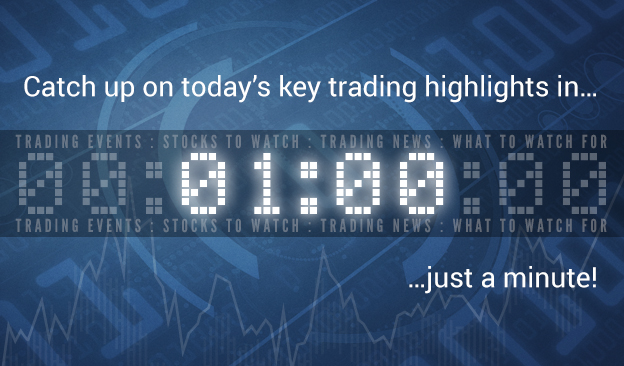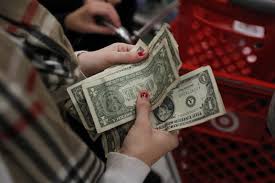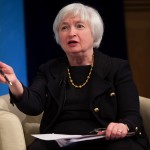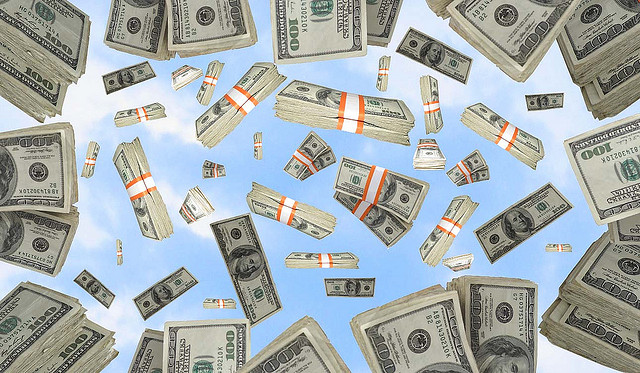Here’s today’s ‘Just A Minute’ bringing you a 60 second summary of what’s happening in the markets:
Main Trading Events Of The Day: USD CB Consumer Confidence @ 15.00 GMT
WHAT WE’RE WATCHING TODAY
U.S. Consumer Confidence Expected To Remain Near Five-Month High
A gauge of confidence among consumers is expected to stay unchanged in February after hitting a five-month high in January, according to economists. The U.S. has recently seen both positive and negative economic developments - conflicting forces that may have largely offset each other when it comes to consumer confidence. Stocks that raced up this month probably perked up consumers. Economists expect the Conference Board to report that its gauge of consumer confidence slightly pulled back to 80.1 this month from 80.7 in January. Consumers are the backbone of the U.S. economy, and analysts watch confidence levels to get a feeling for the direction of spending.
Meanwhile, the U.S. dollar steadied against its rivals in Asian trade with major currency pairs sticking to tight ranges as traders await economic data for more clarity on the pace of the U.S. economic recovery. The immediate focus for the dollar is U.S. data later in the day, including house price index and consumer confidence. Over the past few weeks markets have had to contend with negative surprises on U.S. hiring, retail sales and housing. Traders will also be looking to Thursday, when Federal Reserve Chair Janet Yellen speaks to the Senate Banking Committee in her semi-annual testimony about monetary policy. Yellen’s first few comments since replacing Ben Bernanke as Fed chief have largely supported the current pace of the stimulus-tapering, suggesting the recent weakness in the economy was merely a blip.
Eurozone Inflation In Biggest Monthly Fall In January
Eurozone consumer prices fell in January at their fastest ever pace on a monthly basis, dragged down by a slump in the cost of non-energy industrial goods. This has kept annual inflation well below the European Central Bank’s target. The inflation rate in the 18 countries sharing the euro dropped by 1.1 percent in January compared with December, keeping the annual inflation rate at 0.8 percent for a second month in a row. Economists expected consumer price inflation to accelerate slightly to 0.9 percent in January, a level that is still well below the ECB’s target of close to but below 2 percent. The annual rate was influenced by a 1.2 percent decline in the highly volatile prices of energy, while the monthly decline was hit by a 3.9 percent fall in prices of non-energy industrial goods and a 0.4 percent drop in the price of services.
In January, euro zone members Greece and Cyprus were stuck in deflation. Only Estonia, Latvia and Slovakia saw consumer prices rising month-on-month in January. Italy, the euro zone’s third largest economy, showed a 2.1 percent month-on-month decline, the biggest drop from among all euro zone members. In Germany, Europe’s largest economy, consumer prices fell by 0.7 percent on the month, keeping the annual inflation rate steady at 1.2 percent, with both figures coming below expectations.
Could WhatsApp Be Worth $100 Billion Once It Monetises?
Last week, Facebook Inc. made a huge decision to aquire WhatsApp, a mobile instant messaging app, for $19-billion which had industry observers questioning Mark Zuckerberg’s level of sanity and intelligence. But depending on what they do with the acquisition, it could prove to be a brilliant deal that completely redefines mobile communication and generates huge profits for Facebook. Perhaps this, after all, was a brilliant move on Mark Zuckerberg’s part as it becomes more apparent that he’s thinking about the next decade or more, while most short-term-minded investors suffer from tunnel vision locked onto today’s revenue.
In the next decade, it is likely that the majority of the world will stop using SMS and shift to data-oriented messaging programs on their smartphone. Facebook’s goal should be, and appears to be, to own this market. WhatsApp is huge. It has 450 million monthly active users, and are growing at one million new users per day. Can this be monetised? The possibilities are endless. The global SMS market brings in about $100-billion annually so it’s clear that there is money to be made here. People are not in the habit of using Facebook Messenger for real-time conversations and that’s where WhatsApp comes in. Facebook hasn’t just invested $19-billion to take over a popular instant messaging app. They’ve invested in the possibility of dominating mobile communication, using voice, video and text. The upside, should they execute well, is probably larger than most of us can imagine. We’re holding onto our shares!
That sums up Tuesday’s highlights! Follow us on Facebook, Twitter and Google+ for all the latest trading news and watch out for the all-important U.S. Consumer data later! We hope you have a profitable day on the markets.






